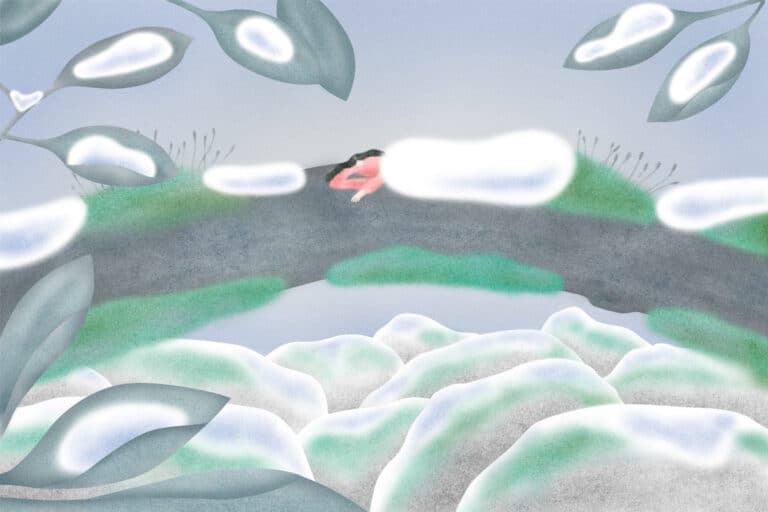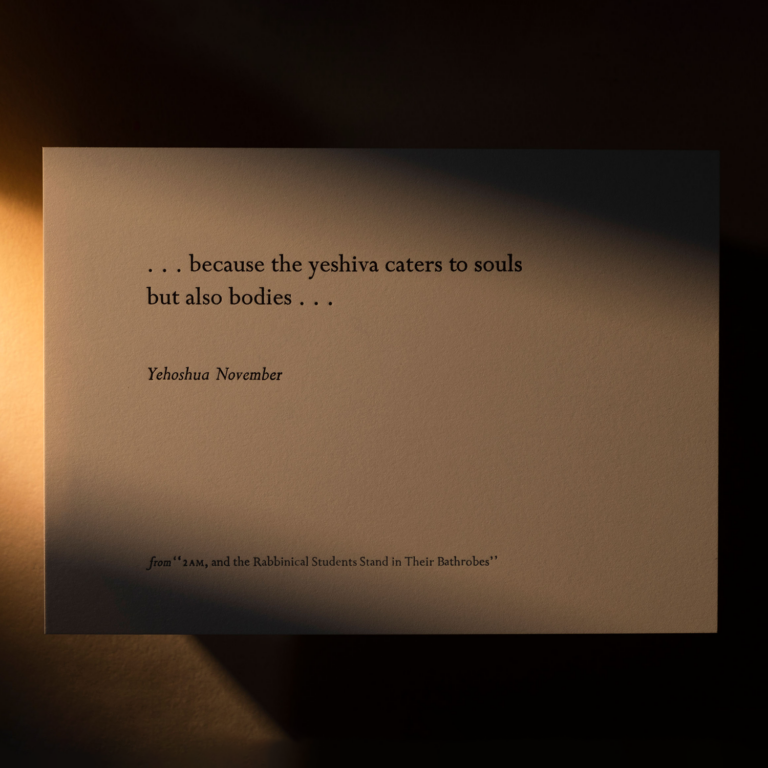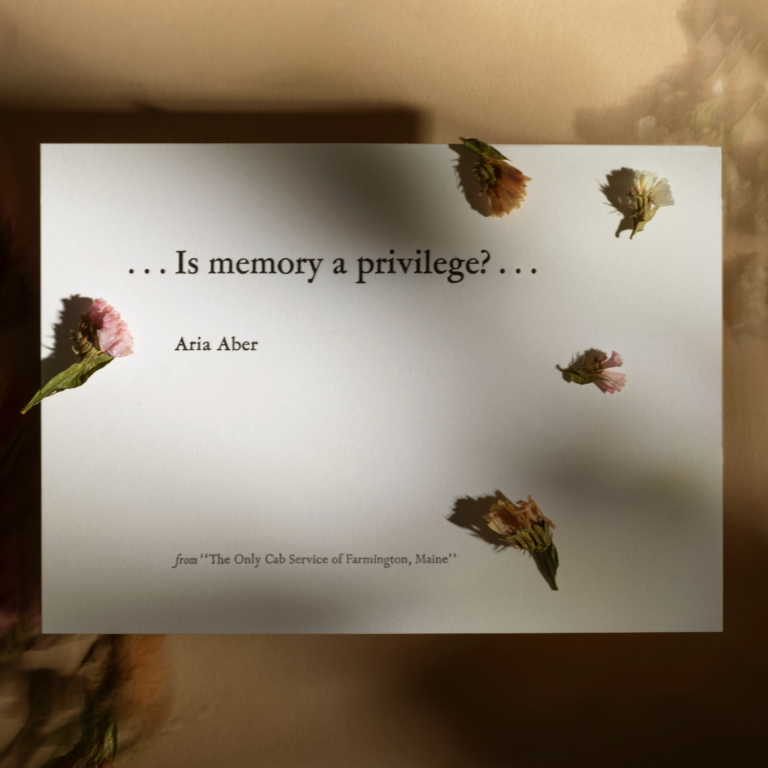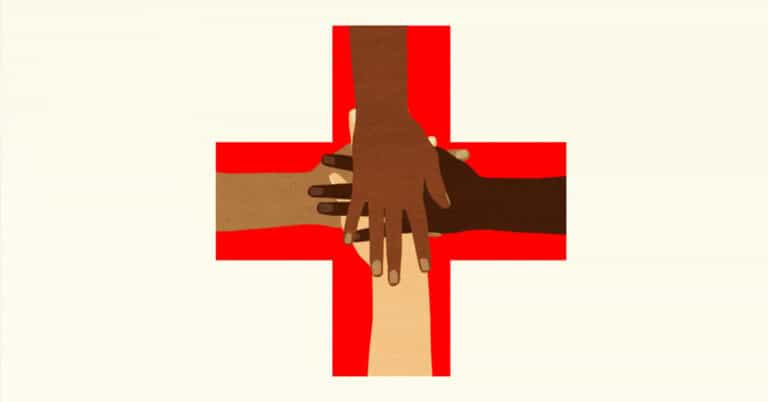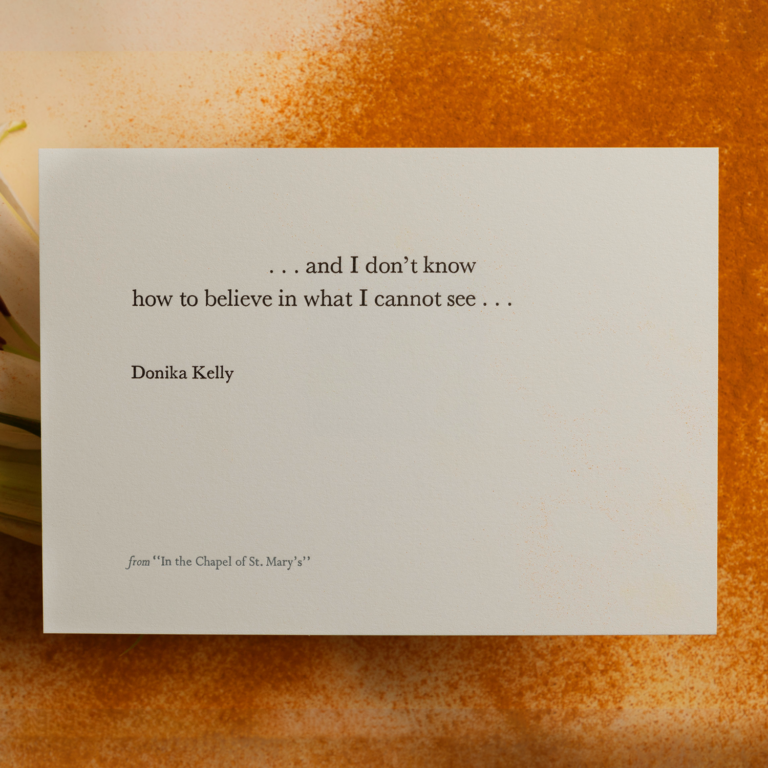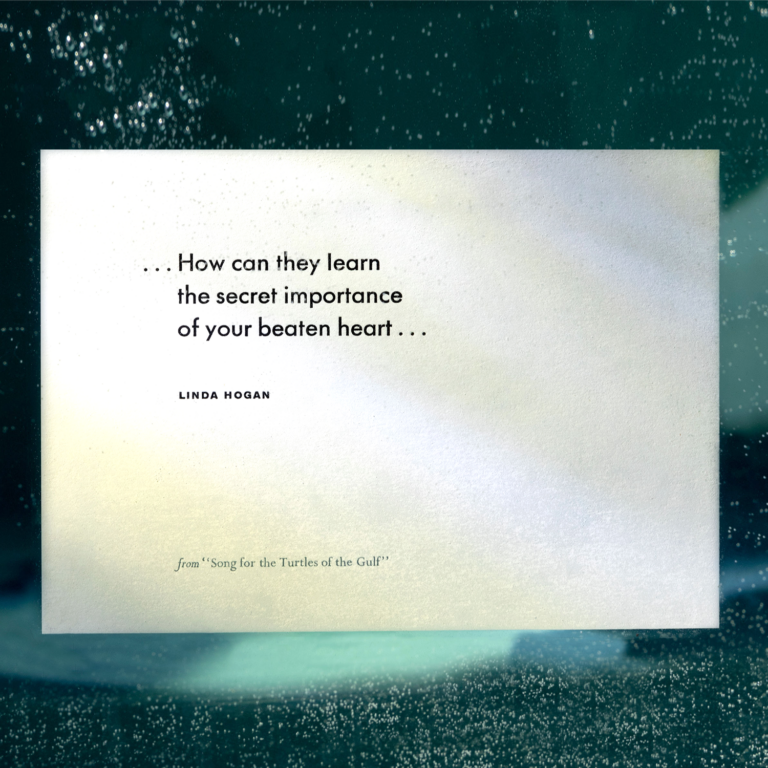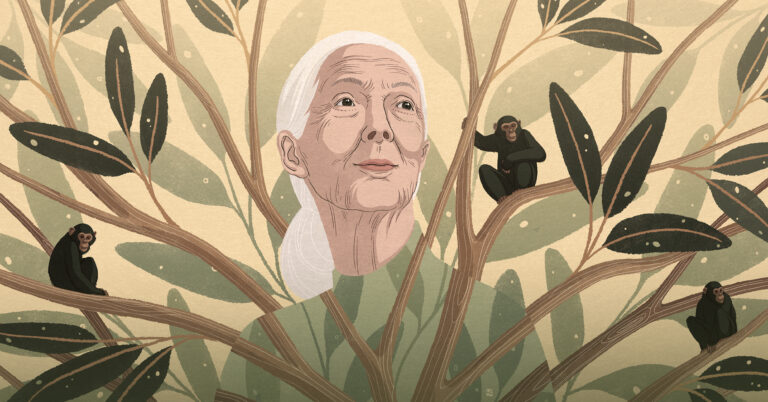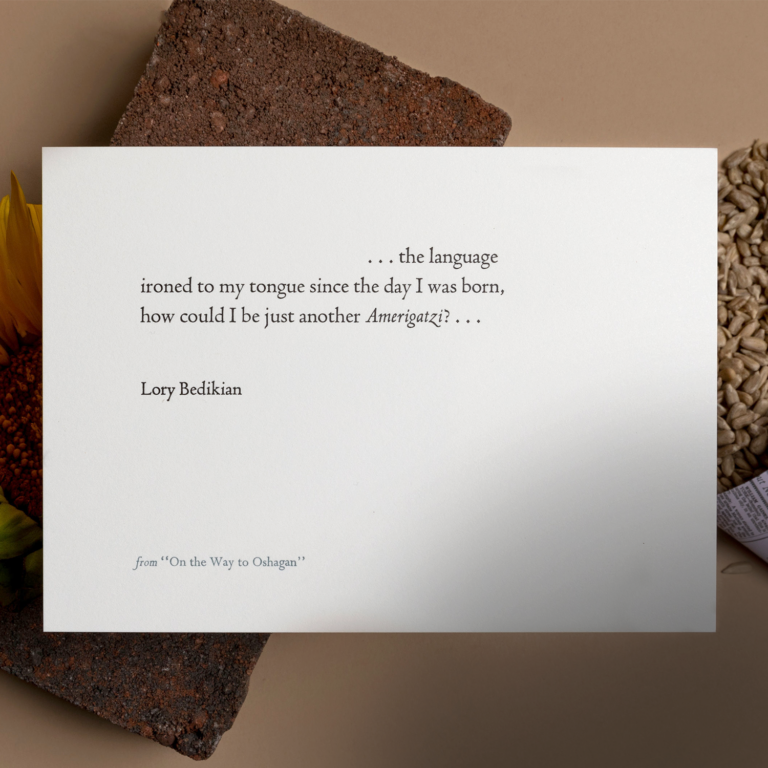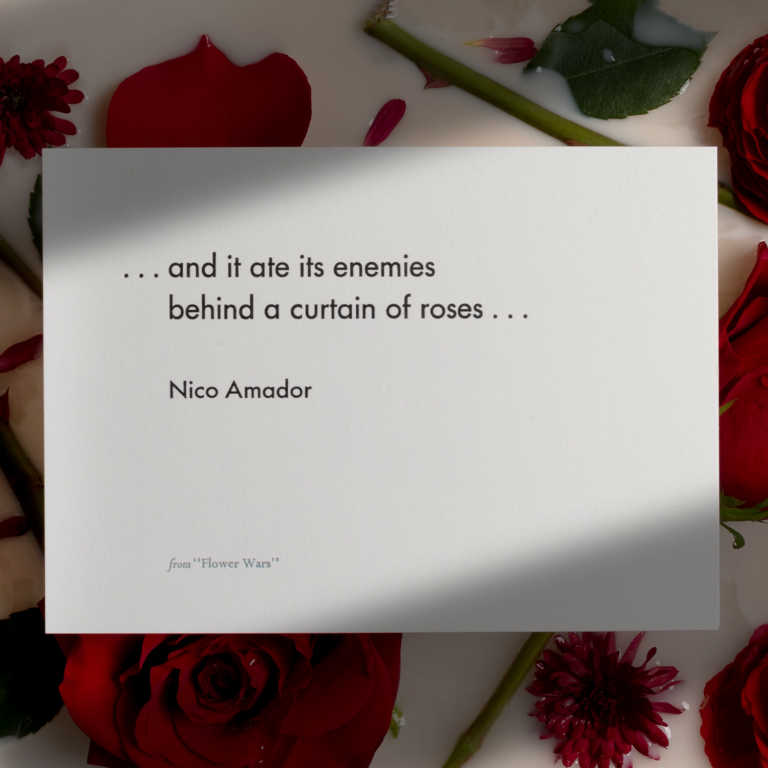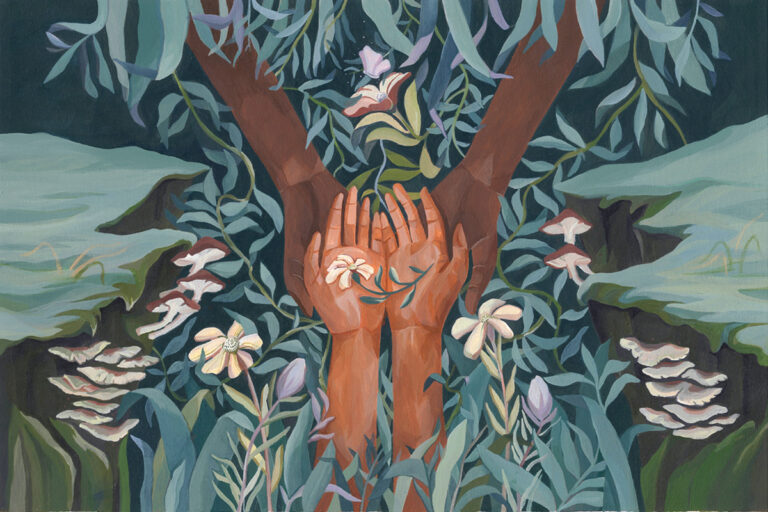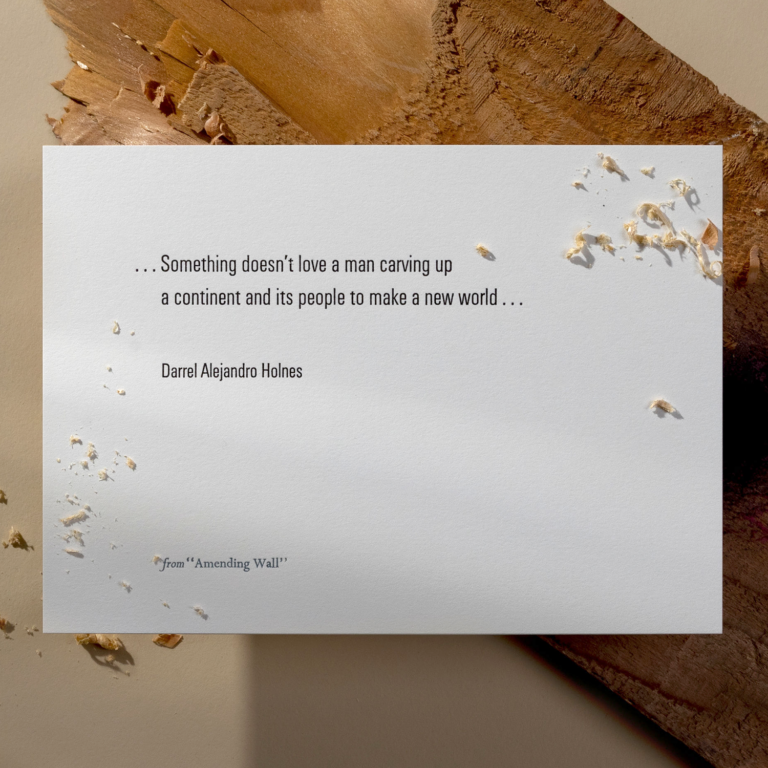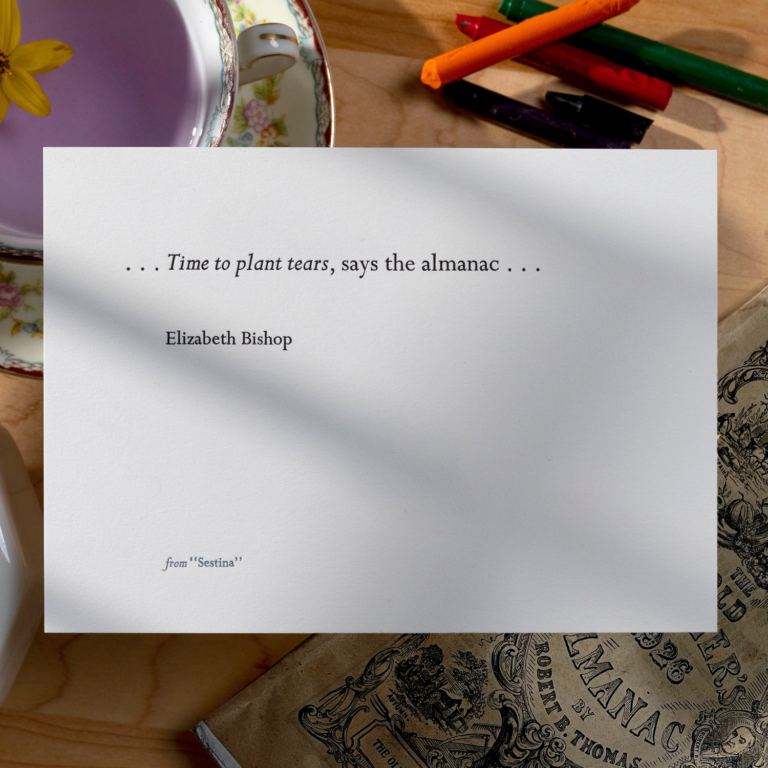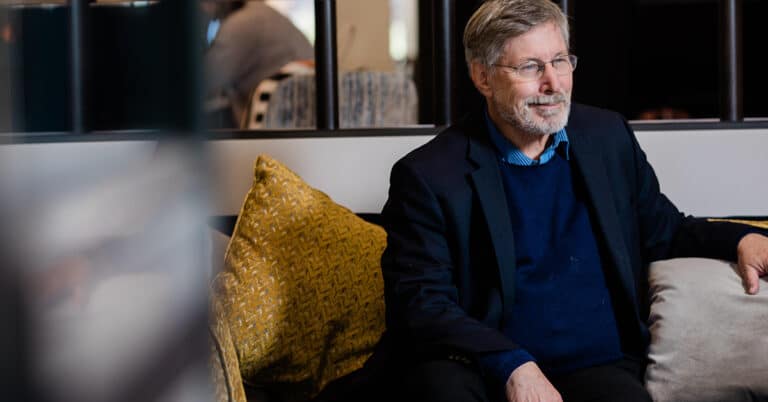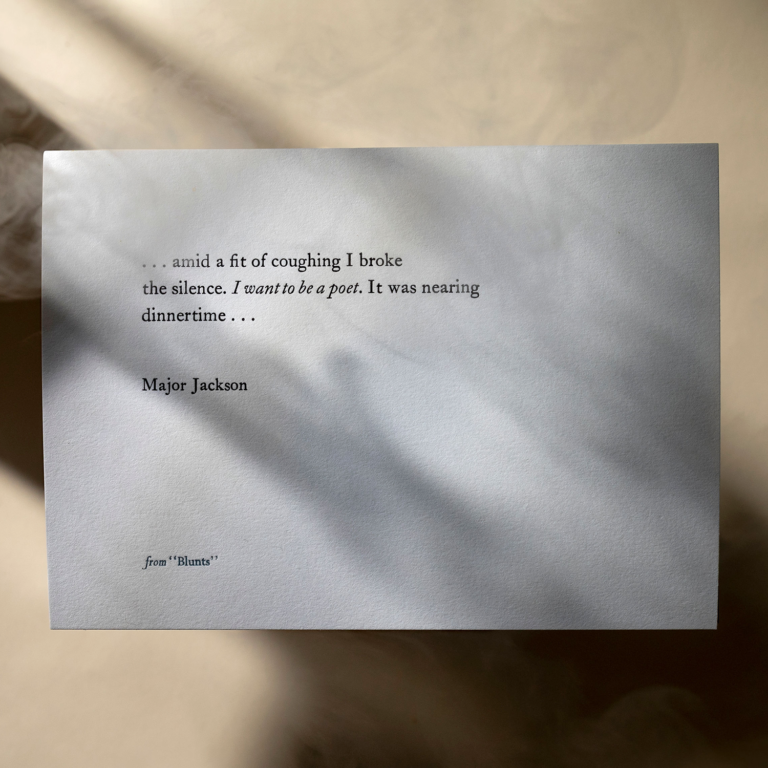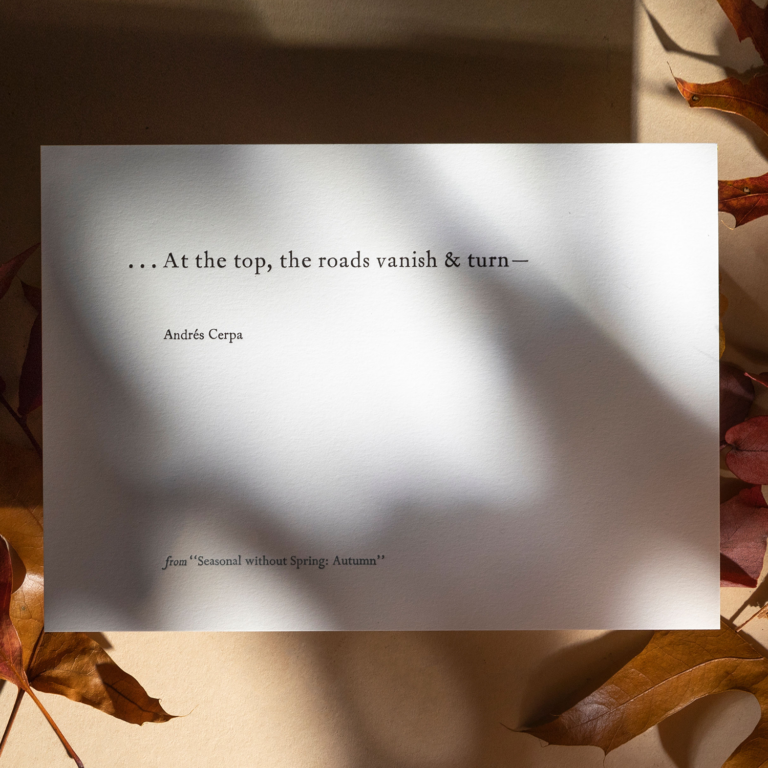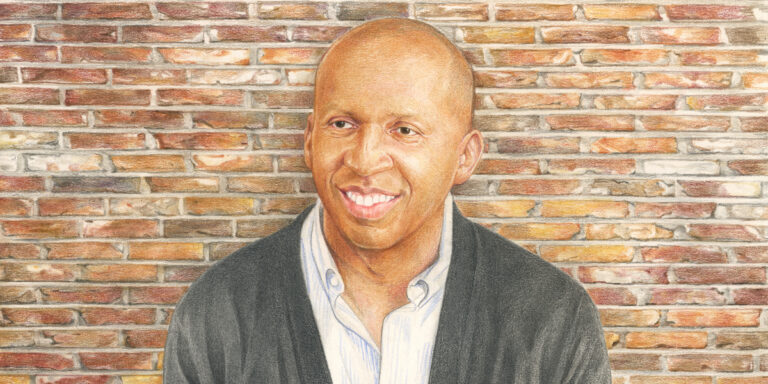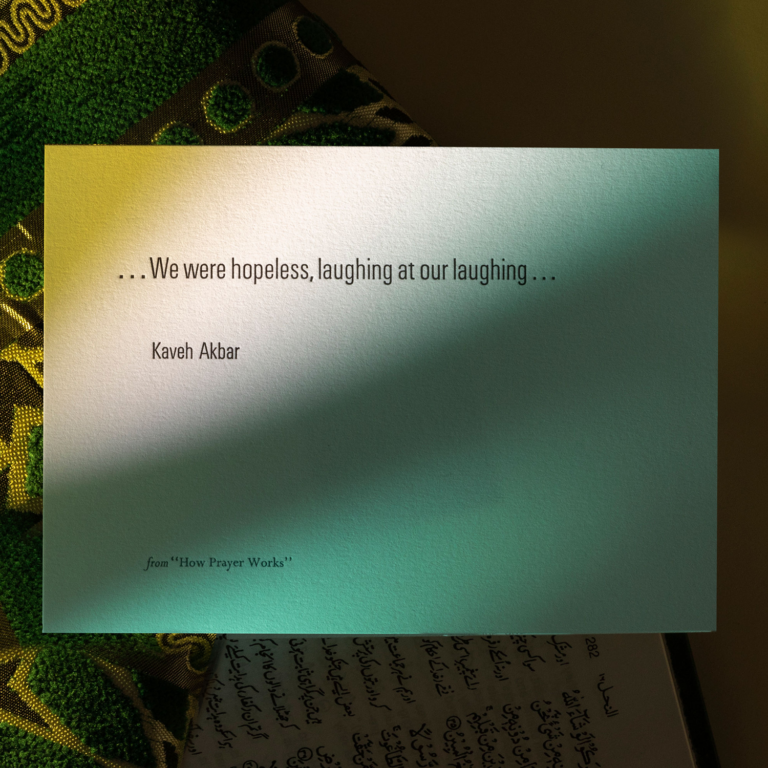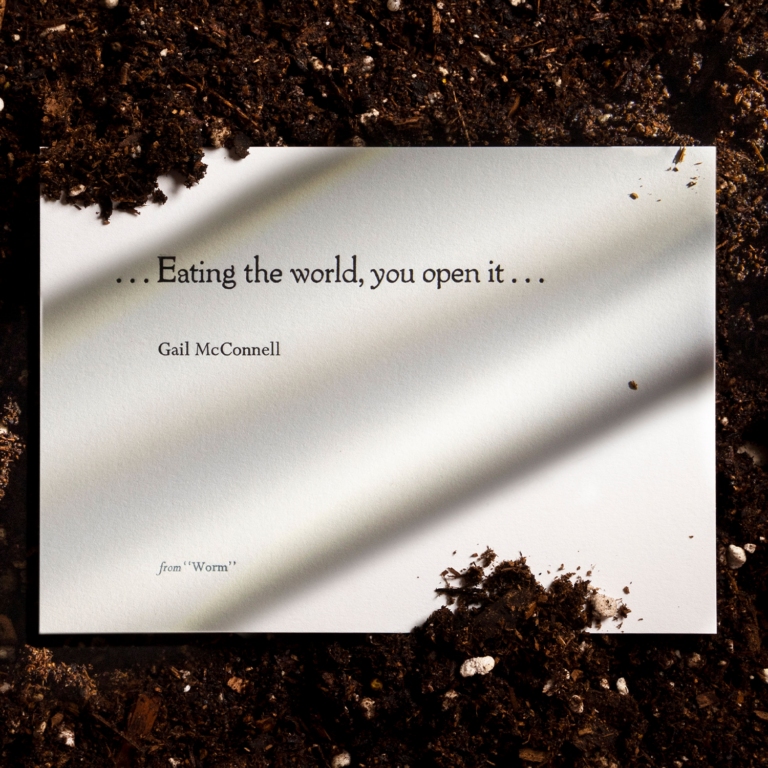In so many stories and fables that shape us, cold and snow, the closing in of the light — these have deep psychological, as much as physical, reality. This is “wintering,” as the English writer Katherine May illuminates in her beautiful, meditative book of that title — at once a season of the natural world, a respite our bodies require, and a state of mind. Krista first spoke with Katherine in midwinter 2020, and their conversation continues to offer a helpful container for our pandemic time: as one vast, extended, communal experience of wintering. As 2021 draws to a close — still with so much to metabolize and to carry, with an aching need for replenishment — Katherine May opens up exactly what so many have needed to hear, but haven’t known how to name.
Podcasts
View
- List View
- Standard View
- Grid View
910 Results
Yeshiva students stand around in the middle of the night while firemen find the cause of the alarm. It’s a student — distressed by distressing news at home. The teachers cancel classes for the morning after. A poem can describe one thing, but point to another, and beyond the drama of this 2 a.m. scene is a question about whether the presence of God can dwell among those plagued by sadness, or whether God only dwells there.
In a taxi, a poet speaks to the driver. It’s the only taxi in town. He mentions travel, mentions Afghanistan, that he was there with the forces. She’s from Afghanistan and the conversation continues — awkward; complicated; him trying to say good things, but failing; her feeling like she should rescue him, but deciding not to. War is upended by the point of view of a person in whose country the war was fought. Underneath the action of the poem is a question about whether conversation is possible, and an appreciation for silence.
December 2, 2021
Vivek Murthy and Richard Davidson
The Future of Well-being
What if the future of well-being is about “tipping the scales in the world away from fear and toward love”? And what if it’s a surgeon general of the United States, Dr. Vivek Murthy, who talks this way? Krista draws him out with his friend, the groundbreaking neuroscientist Richard Davidson. Together they carry deep intelligence and vision from the realms of science and public health, expansively understood. They explore all we are learning to help move us forward as a species. This conversation was held as a live Zoom event, sponsored by the Center for Healthy Minds.
Why do empty places sometimes lend themselves to reflection or contemplation? In this poem, a poet — describing herself as a nonbeliever — goes into a chapel to sit. In the corner there are some girls talking, there are stained glass windows, and the poet is at once at home in herself and far from the woman she loves. The high emptiness of the church seems to give a resting place for the emptiness she’s feeling. While there’s no resolution, the larger empty space offers a holding place for the poet.
In a poem called a “Song,” Linda Hogan crafts a song for turtles and other creatures killed through oil spills in the gulf. At once a praise song for the beauty of the sea, the earth, and its animals, this song also functions as a lament: for the history erased by industrial practices; for the lack of respect and love for living breathing other-than-human lives; for plastic and the plastic containers used to hold the body of a dead sea turtle. The poem veers towards a prayer, too, begging forgiveness for being “thrown off true.”
Jane Goodall’s early research studying chimpanzees helped shape the self-understanding of our species and recalled modern Western science to the fact that we are a part of nature, not separate from it. In honor of the publication of her 32nd book — The Book of Hope: A Survival Guide for Trying Times — we’re re-releasing her beautiful conversation with Krista over Zoom from pandemic lockdown. From her decades studying chimpanzees in the Gombe forest to her more recent years attending to human poverty and misunderstanding, the legendary primatologist reflects on the moral and spiritual convictions that have driven her, and what she is teaching and still learning about what it means to be human.
The exile’s return to the motherland is the theme around which Lory Bedikian’s poem “On the Way to Oshagan” circles. She, a proud Armenian, stops by a roadside stall on a trip to her home country; and is immediately understood as an Amerigatzi, even though she’s speaking Armenian, not English. The poem could end with this awkward exchange, but instead pushes through, and a connection occurs between the returned-departed and the never-departed: there’s a gift, an invitation, and a bridge across exile.
Telling some of the story of the Flower Wars of the Aztec era, Nico Amador’s poem pits wars against creation. In a poem that begins by recalling creation myths from multiple cultures, he then poses questions about why: Why would people sacrifice their own people to keep a god happy? Why would any god benefit from people’s deaths? Evoking how the Flower Wars contributed to the Aztec downfall, this poem also wonders about wars today: Who benefits from a war? Who decides who should die? Why?
Pico Iyer is an esteemed journalist and essayist, and an explorer of inner life — for himself and in 21st-century society. For this episode in our Future of Hope series, he draws out writer Elizabeth Gilbert and “her sense of hope based not on a confidence in happy endings, but the conviction that something makes sense — even if not a sense that we can grasp.” Pico’s questions and Liz’s answers are all the more poignant given that both of them have recently suffered deep losses. These two friends delve into what it means to retreat into smallness, and grapple with a complex understanding of hope, as the world continues to overwhelm.
In a poem that directly addresses Robert Frost’s “Mending Wall,” Darrel Alejandro Holnes asks questions: who gets to build walls, or guard borders? Do good fences really make good neighbors? Taking a poem that’s been part of an American imagination both of poetry and of citizenship, Darrel offers a critique that places contemporary migrant experiences at the center, challenging contemporary ideas of territory, conquest, and expansion.
This sestina poem considers a scene from Elizabeth Bishop’s own childhood through the sounds of six repeating words: house, grandmother, child, stove, almanac, tears. These six words repeat — in different order — as the final words of the poem’s lines, creating a kind of contemplation on how those repeated words informed her childhood: a childhood marked by loss, displacement, and a kind grandmother. “Time to plant tears” the poem states, in one of its most famous lines, as if the scene recalled has information about the future.
November 11, 2021
Bessel van der Kolk
How Trauma Lodges in the Body, Revisited
When Krista interviewed the psychiatrist and trauma specialist Bessel van der Kolk for the first time, his book The Body Keeps the Score was about to be published. She described him then as “an innovator in treating the effects of overwhelming experiences on people and society.” She catches up with him in 2021 — as we are living through one vast overwhelming experience after the other. And The Body Keeps the Score is now one of the most widely read books in the pandemic world. His perspective is utterly unique and very practically helpful — on what’s been happening in our bodies and our brains, and how that relationship can become severed and restored.
Some friends gather and smoke at a doorway in a city. There’s Malik, and Johnny Cash, and Lefty, and Jësus. And the poet, Major Jackson. They’ve known each other their whole lives, and they wonder who they’ll turn out to be. In a moment of disclosure, Major tells his friends he wants to be a poet, astonishing them, and himself too it seems. In friendship and ribbing, in desire and teasing, this poem wonders who a person is, and what it means to hope.
Andrés Cerpa recollects how his father’s early dementia was an increasing influence on his early years. As he grew, his father diminished. The burden of this was heavy on him — he stayed awake listening for information, and fell asleep at school. Older now, he looks at his younger self with tenderness and sadness. This poem gives attention to the experience of the growing presence of absence, and the ways that affects memory, family, and perspective.
November 4, 2021
Bryan Stevenson
Finding the Courage for What's Redemptive
How to embrace what’s right and corrective, redemptive and restorative — and an insistence that each of us is more than the worst thing we’ve done — these are gifts Bryan Stevenson offers with his life. He’s brought the language of mercy and redemption into American culture in recent years, growing out of his work as a lawyer with the Equal Justice Initiative based in Montgomery, Alabama. Now the groundbreaking museum they created in Montgomery has dramatically expanded — a new way of engaging the full and ongoing legacy of slavery in U.S. history. Krista draws out his spirit — and his moral imagination.
A narrative prose poem about two brothers — one on a visit home from college — who are turning to face east in their small shared room. With seven years between them, one is a young man and the other, the poet, is nearing his teens. Their prayer is interrupted by a sudden surprising noise, and the sound of this makes them fall over each other in laughing. Their bodies, their joy, their uncontrollable delight is the prayer of their own lives.
In a poem that addresses a worm directly as “you,” Gail McConnell considers how these tube-shaped beings live: ingesting the earth, aerating it, digesting it, making its nourishment accessible for all kinds of growth. The worm burrows, knows dead things, and knows underground ways. Tiny and segmented though a worm is, nonetheless it senses that “all there is // can be gone through.” The poem’s close attention to the worm’s tactics of survival seems to indicate that much could be learned from its underground ways.
The Pause
Join our constellation of listening and living.
The Pause is a monthly Saturday morning companion to all things On Being, with heads-up on new episodes, special offerings, event invitations, recommendations, and reflections from Krista all year round.
Search results for “”
View
- List View
- Standard View
- Grid View
Filters


